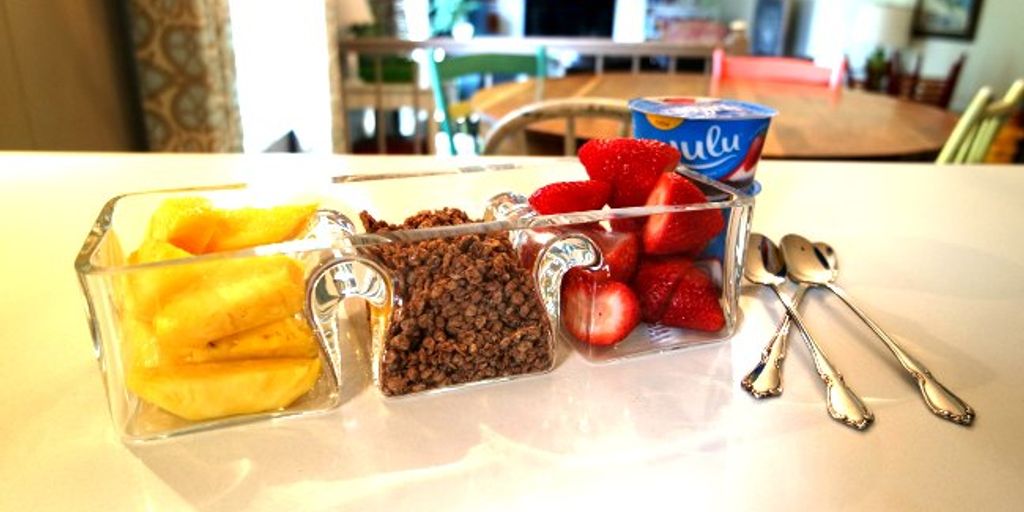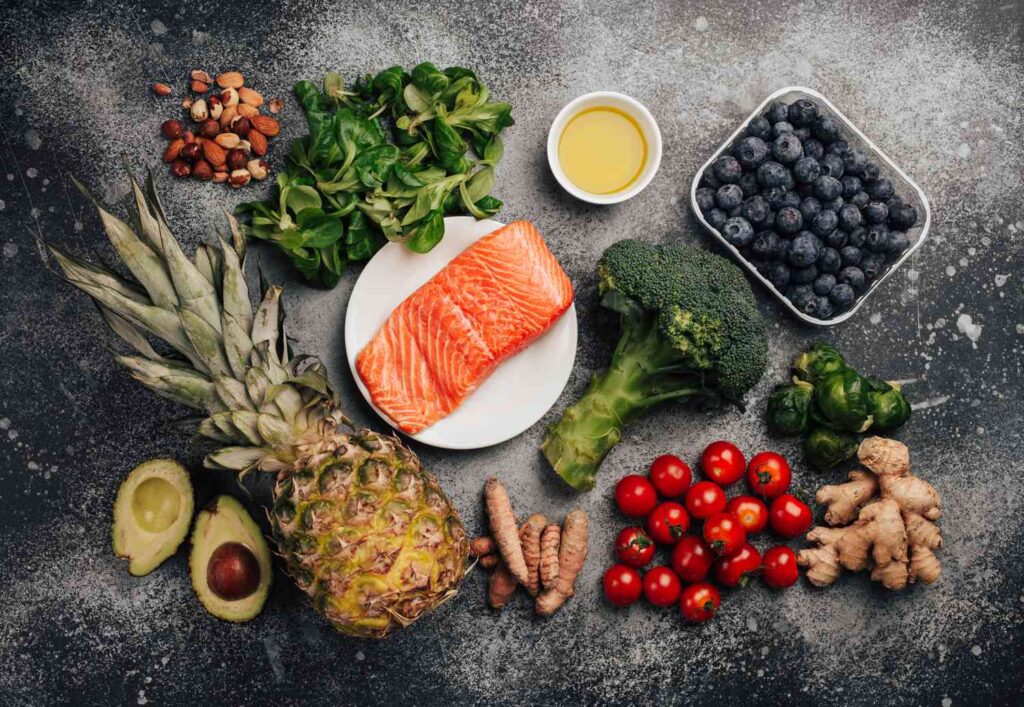Are you a dedicated swimmer looking to enhance your performance in the pool? A well-balanced diet plays a pivotal role in ensuring that you can reach your maximum potential. This comprehensive guide delves into the intricacies of a swimmer’s diet, exploring essential nutrients, food choices, and dietary strategies that can propel you to success in the water.
Key Takeaways
- Incorporate a balanced diet with carbohydrates for energy, protein for muscle repair, and essential vitamins and minerals for overall health.
- Hydration is crucial; swimmers should focus on maintaining proper fluid intake before, during, and after swim sessions to optimize performance.
- Timing meals and snacks to align with training sessions can boost energy levels and improve endurance.
- Consulting with a sports nutritionist can provide tailored dietary strategies to meet individual needs and enhance swimming performance.
- Meal planning and preparation are key to successfully implementing a nutrient-rich diet that supports intense swim training and competition.
Kickstarting Your Day: Morning Meal Plan for Swimmers
Choosing the Right Breakfast Foods
Start your day with a hearty breakfast rich in complex carbohydrates and lean protein to provide the energy needed for early morning training sessions. Good choices include oatmeal, whole grain toast, eggs, and Greek yogurt. These foods not only fuel your body but also ensure you’re ready to hit the water with vigor.

Importance of Hydration in the Morning
Hydration isn’t just about drinking water; it’s about starting your day off right. A hydrated swimmer is a happy swimmer, so make sure to drink a glass of water first thing in the morning. Consider adding a slice of lemon for some extra zest and vitamin C!
Quick and Nutritious Breakfast Ideas
If you’re often rushed in the mornings, prepare simple yet nutritious meals that can be eaten on the go. Eat something light and easily digestible such as cereal, oatmeal, banana, toast, fresh fruit, or yogurt. If you really lack appetite in the morning, try a smoothie packed with fruits, vegetables, and a scoop of protein powder.
Powering Through: Pre-Workout Meals and Snacks
Optimal Foods for Energy Boost
To ensure you’re fully charged for the pool, focus on carbohydrates that provide quick, easily digested energy. Ideal choices include bananas, oatmeal, and whole grain breads. Pair these with a moderate amount of proteins like Greek yogurt or a handful of nuts to balance the meal.
Timing Your Meals Before Swimming
It’s crucial to time your meals to maximize energy levels during your swim. Aim to eat a full meal 3-4 hours before your workout and a smaller snack about 45-60 minutes prior. This strategy helps in maintaining optimal energy levels without feeling too full or sluggish.
Healthy Snack Options for Swimmers
For those quick pre-pool boosts, easy-to-digest snacks can be a game changer. Consider options like a small smoothie, a piece of fruit, or a granola bar. These are not only nutritious but also convenient for those early morning sessions or quick transitions from school or work to the pool.

Recovery and Growth: Post-Workout Nutrition
Essential Nutrients for Muscle Repair
After pushing your limits in the pool, your muscles are eager for repair and growth. Protein plays a crucial role here, acting as the building block for muscle repair. Aim for a good mix of amino acids by including sources like chicken, fish, eggs, and plant-based proteins such as lentils and chickpeas.
Best Foods for Quick Recovery
To bounce back quickly, your body needs the right fuel. Carbohydrates are essential as they replenish the muscle glycogen depleted during exercise. Opt for whole grains, fruits, and vegetables. Don’t forget to include some healthy fats like avocados and nuts which can help with inflammation.
Hydration After Intense Sessions
Rehydrating after a swim is non-negotiable. Water is your best friend, but incorporating electrolyte-rich drinks can help restore the balance of minerals lost through sweat. Keep an eye on your urine color — a light straw color means you’re well-hydrated.
Long-Term Nutrition Strategies
Balancing Macronutrients
Balancing your macronutrients is crucial for sustained performance and health. Swimmers should aim for a mix of carbohydrates, proteins, and fats that supports their energy needs and recovery processes. A typical guideline might look like 50-60% carbohydrates, 15-20% protein, and 20-30% fats.
Incorporating Supplements Wisely
Supplements can be a helpful addition but should never replace whole foods. Focus on supplements that fill dietary gaps or support recovery, like omega-3 fatty acids or whey protein. Always choose reputable brands and consult with a healthcare provider before starting any new supplement regimen.
Consulting with a Sports Nutritionist
To tailor your diet to your specific needs, consulting with a sports nutritionist can be invaluable. They can help you adjust your meal plans based on training intensity, competition schedules, and personal health goals. Regular reviews can keep your nutrition on track and dynamically adjust to your evolving needs as a swimmer.
Hydration: The Unsung Hero of Swimming Success
Understanding the Role of Fluids
Hydration isn’t just about quenching thirst; it’s a cornerstone of peak performance in swimming. Fluids help regulate body temperature, keep joints lubricated, and ensure that nutrients are transported efficiently throughout the body. For swimmers, staying hydrated can mean the difference between a good and a great performance.
How Much to Drink
It’s crucial to get the amount right—not too little and not too much. Swimmers should start their day with at least 16 oz of water and continue to sip throughout the day. During intense training, the recommended fluid intake can increase significantly. Here’s a quick guide:
- Before practice: 16 oz about 2 hours prior
- Just before diving in: 8-16 oz
- During practice:
- If less than 60 minutes, drink 6-12 oz every 20 minutes
- If more than 60 minutes, drink 6-12 oz of a 6-8% carb solution every 20 minutes
Signs of Proper Hydration
Knowing you’re well-hydrated can be tricky. Look for clear or light yellow urine as a good indicator. Other signs include a steady energy level and the absence of muscle cramps or fatigue. If you’re feeling dizzy or overly tired, it might be a sign to up your fluid intake. Remember, maintaining optimal hydration is key to enhancing your swimming performance and recovery.
Smart Choices: Building a Nutrient-Rich Meal Plan for Swimmers
Key Vitamins and Minerals
To swim fast and maintain energy, it’s crucial to include a variety of key vitamins and minerals in your diet. Focus on iron for oxygen transport, calcium for bone strength, and magnesium for muscle function. Here’s a quick list of swimmer-friendly foods rich in these nutrients:
- Spinach (Iron)
- Dairy products (Calcium)
- Nuts and seeds (Magnesium)
Foods to Include and Avoid
To swim better, knowing what to eat and what to skip is essential. Include lean proteins like chicken and fish, complex carbohydrates like whole grains, and healthy fats from avocados and nuts. Avoid sugary snacks and high-fat fast foods that can drag down your performance.
Meal Planning Tips
Planning your meals can make a huge difference in your swim nutrition. Start with a 14-day meal plan that includes a variety of nutrient-dense foods. Prepare meals in advance to save time and ensure you’re fueling your body correctly before and after swim sessions. Remember, consistency is key to seeing results in the pool!
Navigating Challenges: Eating Well on Competition Days
Pre-Competition Eating
On the big day, starting off right is crucial. Aim for a meal rich in carbohydrates and familiar foods 1-3 hours before your event. Avoid new foods or heavy, fatty meals that might upset your stomach. An ideal meal might include starchy carbs like bread or pasta, a small serving of protein, and plenty of fluids.
During Competition Nutrition
Keeping energy levels consistent is key during events. Opt for light, carbohydrate-rich snacks such as fruit or cereal bars between events. Hydration is also crucial, so sip on sports drinks or water to maintain energy and hydration levels.
Post-Competition Recovery Meals
After the race, your focus should shift to recovery. Consume foods rich in carbohydrates and protein to aid muscle repair. Hydration continues to be important, so keep up with fluids. A balanced meal post-competition might include a mix of carbs, protein, and a hydration drink to ensure a quick recovery.

On competition days, maintaining optimal nutrition can be a challenge, yet it’s crucial for peak performance. Visit our ‘Nutrition Strategies‘ section to explore practical tips and dietary plans tailored for swimmers. Ensure you’re fuelled for success with our expert advice. Dive into our resources now!
Conclusion
In conclusion, maintaining a good diet for swimmers is essential for achieving peak performance in the pool. By prioritizing nutrient-rich choices, staying properly hydrated, and incorporating the right balance of protein, carbohydrates, and fats, swimmers can optimize their training and recovery. Remember that individual needs may vary, so consulting with a nutrition expert is always a wise choice. Dive into the world of healthy eating, and watch your swimming performance soar!
Read more: Unlocking the Best Diet Plan for Swimmers: A Comprehensive Guide
AUTHOR
Sang Nguyen
Sang Nguyen is a former national swimmer for Vietnam who has transitioned into coaching. With a passion for fostering a healthy swimming community and connecting like-minded individuals,......Read More
BLOG
Maybe You Are Interested
Good Swim Meet Snacks: What to Eat for Optimal Performance
Good nutrition is crucial for swimmers to maintain energy, recover quickly, and perform at their...
Read More...Optimizing Your Performance: The Best Diet for Swimming Training
Optimizing your performance in swimming is not just about rigorous training; it’s equally crucial to...
Read More...Achieve Peak Performance with This Diet Chart for Swimmers
Whether you’re a novice or an expert swimmer, understanding the right diet is crucial for...
Read More...Eating Like a Champion: Exploring the Diet of Michael Phelps
Michael Phelps, renowned for his Olympic triumphs, has a diet as extraordinary as his swimming...
Read More...Muscle Gain for Swimmers: Tailoring Your Diet for Strength
Swimming is a demanding sport that requires a tailored approach to nutrition to support muscle...
Read More...A Comprehensive Diet Plan To Gain Weight For Swimmers
Swimming is a demanding sport that requires meticulous attention to nutritional needs to optimize performance,...
Read More...